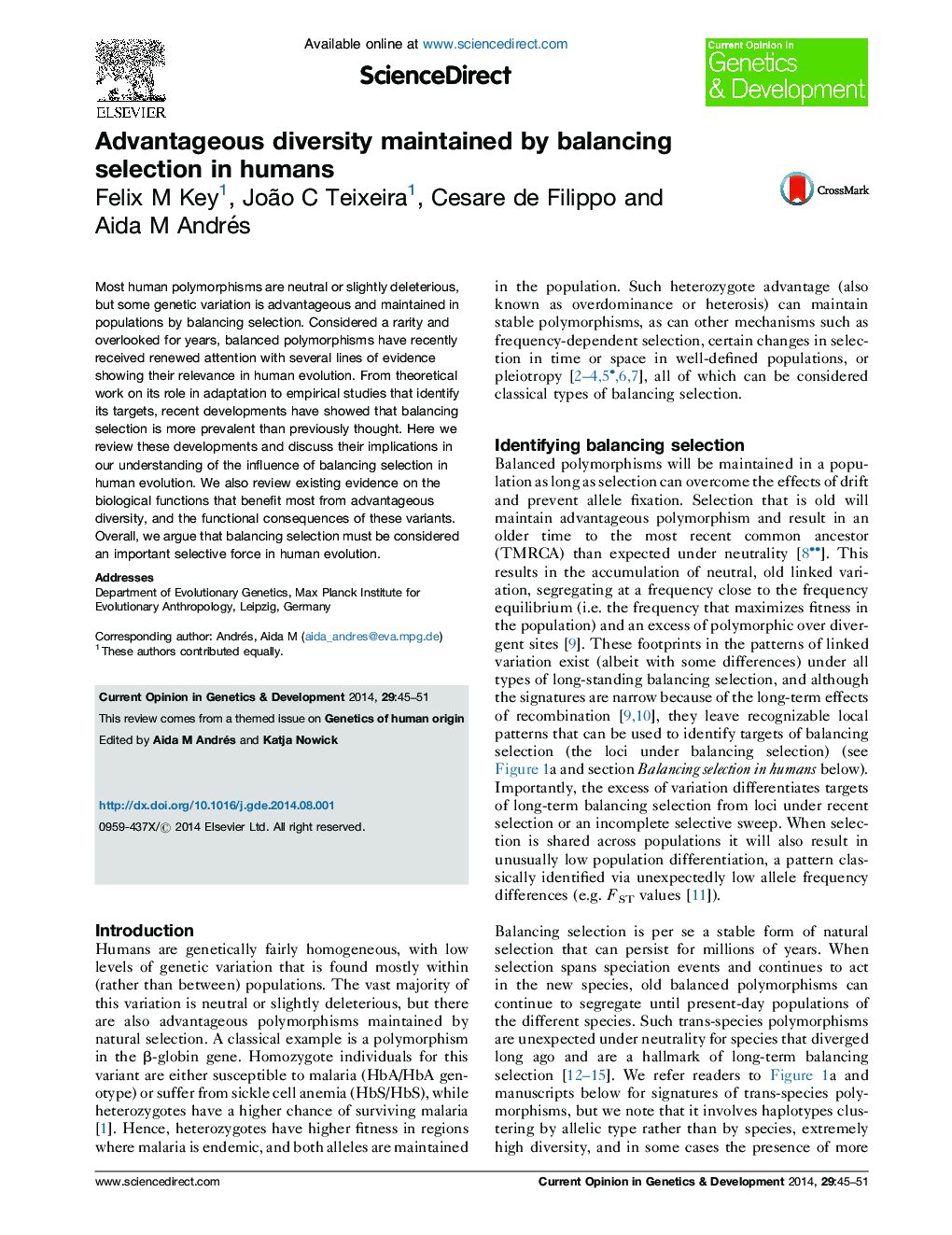| Article ID | Journal | Published Year | Pages | File Type |
|---|---|---|---|---|
| 5893386 | Current Opinion in Genetics & Development | 2014 | 7 Pages |
Abstract
Most human polymorphisms are neutral or slightly deleterious, but some genetic variation is advantageous and maintained in populations by balancing selection. Considered a rarity and overlooked for years, balanced polymorphisms have recently received renewed attention with several lines of evidence showing their relevance in human evolution. From theoretical work on its role in adaptation to empirical studies that identify its targets, recent developments have showed that balancing selection is more prevalent than previously thought. Here we review these developments and discuss their implications in our understanding of the influence of balancing selection in human evolution. We also review existing evidence on the biological functions that benefit most from advantageous diversity, and the functional consequences of these variants. Overall, we argue that balancing selection must be considered an important selective force in human evolution.
Related Topics
Life Sciences
Biochemistry, Genetics and Molecular Biology
Developmental Biology
Authors
Felix M Key, João C Teixeira, Cesare de Filippo, Aida M Andrés,
